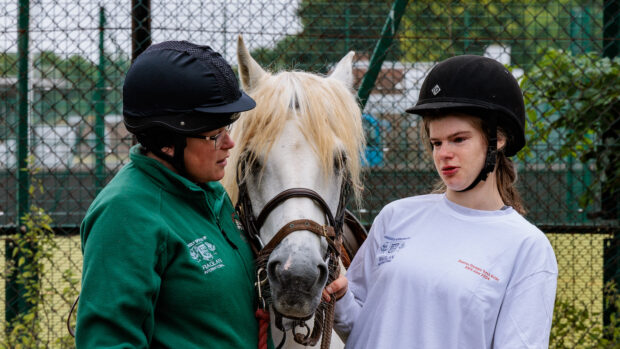The British Horse Society (BHS) has issued a call to arms for the horseworld to help collect information on ragwort as part of the first survey of its kind in the UK.
“Currently there is no data on the prevalence of ragwort in the UK and its potential threat to livestock,” said Lee Hackett, head of welfare for the BHS.
“But we get the impression, through people contacting our welfare department, that ragwort is on the increase.”
The BHS wants everyone involved with horses to log onto their online survey during Ragwort Awareness Week — 12-18 July.
Respondents will be asked to provide information on where they have spotted ragwort, the density of growth and approximately how many animals — including sheep, cattle and horses — are grazing in the immediate vicinity.
“It will only take five minutes to complete the survey and if people could spot this noxious weed and then let us know, they will be making a valuable contribution to our horses’ future,” Mr Hackett added.
The online campaign will run for the duration of Ragwort Awareness Week with data collected being compared to the same period in years to come, in the hope of establishing trends in the growth and spread of thekiller plant.
The BHS is also aware it has no evidence to prove whether legislation regarding the toxic weed is effective and if the educational message is getting across to livestock owners.
The Weeds Act of 1959 and Control of Ragwort Act (2003) put the responsibility for eradicating ragwort at the landowner or occupier’s door.
But the charity fears the law is not being enforced, except in Wales where the Welsh Assembly recently released an agricultural bulletin warning that anyone found infringing the Weeds Act would be reprimanded.
Although death by ragwort poisoning is rare in horses, H&H vet Karen Coumbe MRCVS describes the plant as a “hit-and-run attacker”.
She said: “Ragwort will cause considerable liver damage, but it often doesn’t appear until much later, making it difficult to link liver failure directly to ragwort consumption.”
Signs of severe equine liver damage range from blindness to fits, weight loss and nerve damage.
“Ragwort poisoning is entirely preventable — if the ragwort’s not there it won’t be a problem,” Mrs Coumbe added.
For more information and to access the survey go to www.bhs.org.uk
This article was first published in Horse & Hound (1 July, ’10)




